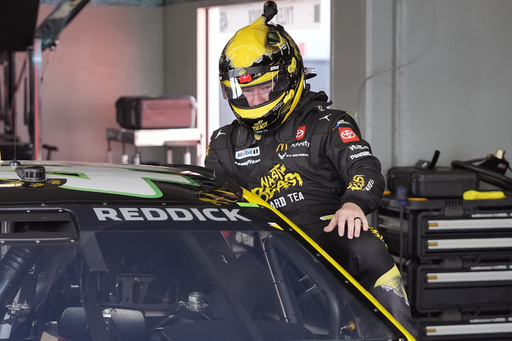DAYTONA BEACH, Fla. — NASCAR submitted a detailed 68-page appeal on Wednesday evening, just an hour prior to the qualifications for the Daytona 500. The appeal contests a federal judge’s previous ruling that designated 23XI Motorsports and Front Row Motorsports as chartered teams for the 2025 season amid ongoing antitrust litigation involving these teams.
U.S. District Judge Kenneth Bell, operating out of the Western District of North Carolina, had issued a preliminary injunction in December. This ruling permitted 23XI and Front Row to enjoy the same benefits as chartered teams while their legal dispute is still in progress.
23XI Racing is co-owned by NBA legend Michael Jordan and three-time Daytona 500 champion Denny Hamlin. Meanwhile, Front Row Motorsports is under the ownership of entrepreneur Bob Jenkins.
Last month, Judge Bell declined NASCAR’s motion to dismiss the lawsuit and also rejected a request for the two teams to secure a bond that would cover any payments received as chartered teams, in case they lose their case.
In the appeal, NASCAR stated, “The district court’s injunction orders contravene federal antitrust laws, misinterpret the established criteria for preliminary injunctions, overlook significant evidence, and could have far-reaching consequences for NASCAR’s Cup Series in 2025.” The governing body expressed concerns that the injunctions misused judicial authority, compelling NASCAR to treat its legal opponents as collaborators, which undermines the trust that has been pivotal for NASCAR’s growth and success.
Interestingly, the appeal’s timing coinciding with Daytona 500 time trials was due to a mandated court deadline. NASCAR typically refrains from discussing ongoing litigation.
NASCAR has asserted that it intends to defend itself vigorously against the antitrust allegations, believing that the claims from 23XI and Front Row lack merit. The teams allegedly did not agree with the conditions of the charter agreements, making them the only two of 15 teams that chose not to sign the contracts presented by NASCAR shortly before the playoffs last season.
The organization contends that dissatisfaction with a contract does not constitute grounds for an antitrust claim. NASCAR has indicated its readiness to take the dispute to trial, suggesting that if 23XI and Front Row are victorious, the sanctioning body may dismantle the charter system entirely instead of renegotiating contracts.
NASCAR noted, “All other team owners who were offered improved Charter terms accepted them, whereas these two raised issues about various terms but did not address the mutual releases.” After withdrawing its offers, NASCAR proceeded with plans for the 2025 season without granting the charter status sought by 23XI and Front Row. As a result, the two teams turned to legal avenues, trying to leverage the standard release provision in the charter agreements as a means to obtain what they initially rejected.
The lawsuit centers on agreements established in 2016, which provide a guarantee for teams holding charters to compete regularly, along with revenue assurances. There are 36 guaranteed slots available in each race, with four additional slots for non-chartered cars. NASCAR argues that since 23XI and Front Row did not sign the charters, they should compete as open cars.
Additionally, NASCAR was hesitant to approve the transfer of charters from the now-defunct Stewart-Haas Racing to these teams, who each acquired one charter to expand their operations from two to three cars. Without Judge Bell’s injunction permitting them charter status for 2025, a combined total of six cars from the two teams would fail to secure automatic entrance into the Daytona 500.
Currently, 23XI fields Toyotas for new driver Riley Herbst, recent regular-season champion Tyler Reddick, and Bubba Wallace. Front Row Motorsports runs Fords for Noah Gragson, Todd Gilliland, and newcomer Zane Smith.
NASCAR concluded its appeal statement by expressing a preference for extending 2025 Charter benefits to owners who are enhancing NASCAR’s competitiveness alongside other sports in attracting fans, sponsors, and media attention, rather than to those who jeopardize the NASCAR brand.




